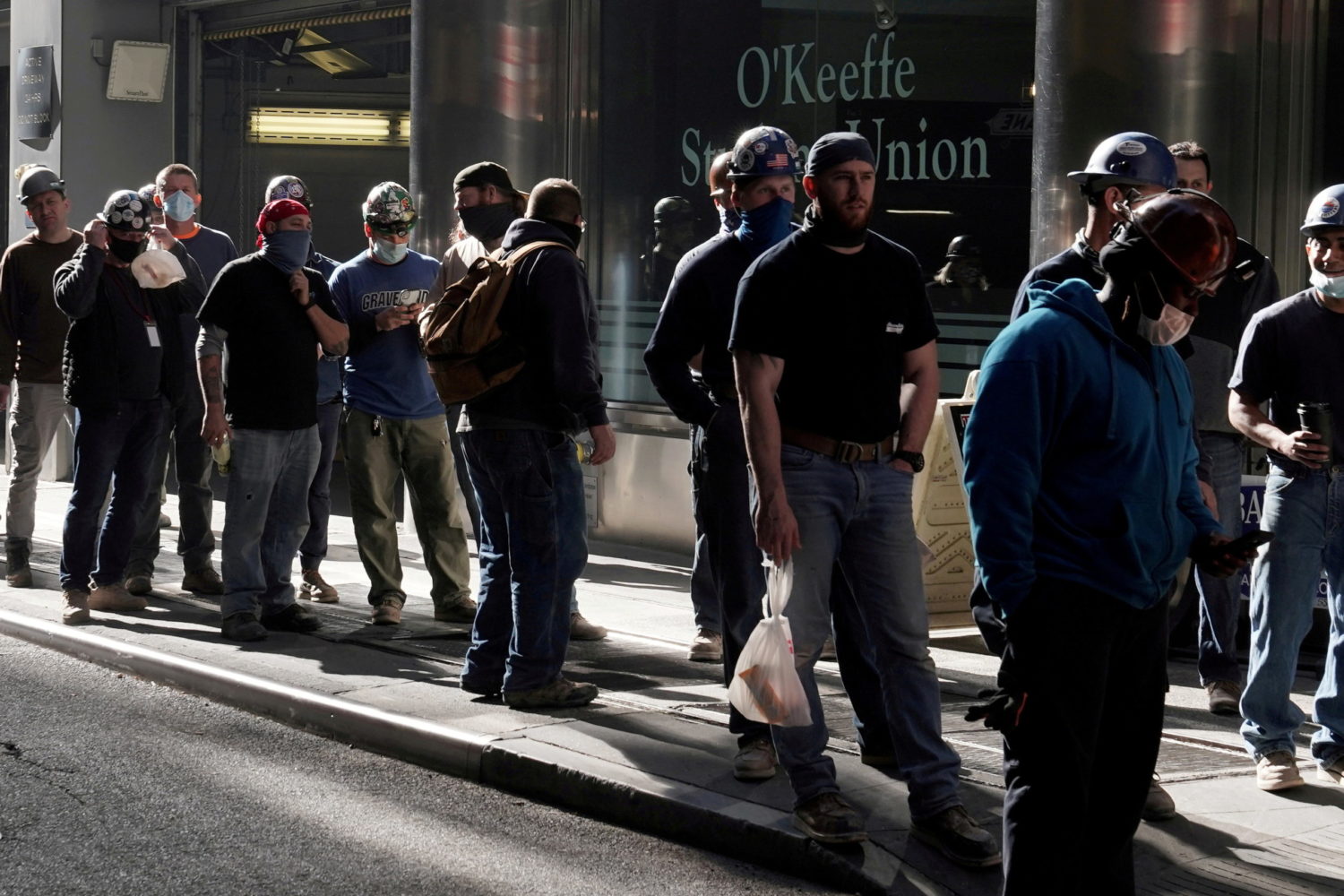
By Rupam Jain, Abdul Qadir Sediqi and Charlotte Greenfield
KABUL (Reuters) – Taliban fighters have protected western military bases in Afghanistan from attacks by rival, or rogue Islamist groups for over a year under a secret annex to a pact for the withdrawal of all U.S. forces by May 1, three Western officials with knowledge of the agreement told Reuters.
The U.S. State Department gave no immediate response to Reuters over the existence of any such document. Nor did it have any immediate comment on what the three officials described as a “Taliban ring of protection”.
Since United States struck a deal with the Taliban in February 2020, paving the way for America to end its longest war, there have been no U.S. combat deaths, and there have been only isolated attacks on U.S. bases.
Instead, the Taliban intensified attacks on Afghan government forces, and civilian casualties have spiraled.
Peace talks between the militants and the government, begun in September, have made no significant progress, and a U.N. report said civilian casualties were up 45% in the last three months of 2020 from a year earlier.
Testing Taliban patience, U.S. President Joe Biden served notice that the U.S. withdrawal would overshoot the May 1 deadline agreed by the previous U.S. administration, while giving an assurance that it would be completed by Sept. 11 – the 20th anniversary of the al Qaeda attacks on the United States.
When the deadline passes on Saturday, around 2,000 U.S. troops will still be in Afghanistan, according to a western security official in Kabul. The commander of foreign forces in Afghanistan, U.S. Army General Scott Miller earlier this week said an orderly withdrawal and the handing over of military bases and equipment to Afghan forces had begun.
Afghan soldiers left manning those bases could need plenty of firepower to resist any offensive by Taliban fighters who have been occupying strategic positions in surrounding areas.
In the past two weeks alone, the militants have killed more than 100 Afghan security personnel in a surge of attacks that followed Biden’s announcement that a U.S. withdrawal would take a few months more.
Two of the Western officials said Washington had accepted the Taliban’s offer to shield the western military bases from attacks by the likes of Islamic State.
The officials said the Taliban had wanted to demonstrate good faith by meeting a commitment to ensure Afghan soil was not used for attacks on U.S. interests – a key U.S. demand in the February agreement.
“They provided a layer of cover, almost like a buffer and ordered their fighters to not injure or kill any foreign soldier in this period,” said one western diplomat involved in the process.
The western officials said it was also important for the Taliban to show its ability to control the more recalcitrant factions in its movement, like the Haqqani network, which has often followed its own agenda, though its leader Sirajuddin Haqqani is the second-highest ranking commander in the Taliban.
A Kabul-based western security official said that militants had kept their side of the bargain.
“The Taliban swiftly responded to even minor attacks conducted by the Haqqani network and Islamic State fighters around the bases,” he said.
DEADLINE SATURDAY
Taliban spokesman Zabihullah Mujahid declined to comment on the so-called “ring of protection” agreement.
More broadly, he said no security guarantee has been given to the United States beyond Saturday’s deadline, but talks were underway among the group’s leadership and with the U.S. side.
“So far our commitment of not attacking the foreign forces is until May 1, after that whether we will attack or not is an issue under discussion,” said Mujahid.
Mullah Baradar, the Taliban’s deputy political chief, held talks with U.S. envoy Zalmay Khalilzad to discuss the peace process on Thursday, another militant spokesman, Suhail Shaheen, said in a Twitter post.
Clearly having the militants holding positions around Western bases presents a danger if no understanding is reached.
“They’ve definitely moved ever closer to a lot of Afghan and foreign bases,” said Ashley Jackson, co-director of the Centre for the Study of Armed Groups at Overseas Development Institute, a London-based think-tank.
“Encircling U.S., NATO, and Afghan bases seems like the Taliban strategy to poise themselves to take over when foreign forces leave.”
Afghan defense ministry spokesman Fawad Aman said the Taliban had ramped up violence against the Afghan people and their government, while holding fire against foreign forces.
More than 3,000 Afghan civilians were killed and almost 5,800 were wounded in 2020, according to a United Nation report.
“By not attacking the foreign forces but continuously targeting the Afghan security forces and civilians, the Taliban have shown that they are fighting against the people of Afghanistan,” Aman said.
Michael Kugelman, deputy director of the Asia Program at the Woodrow Wilson Center in Washington, sympathized with that view, saying: “they have every right to lambaste a U.S.-Taliban agreement for failing to bring a semblance of relief to Afghans themselves.”
(Reporting by Abdul Qadir Sediqi in Kabul, Charlotte Greenfield in Islamabad and Rupam Jain in Panjim, India; Additional reporting by Jonathan Landay in Washington; Editing by Simon Cameron-Moore)












